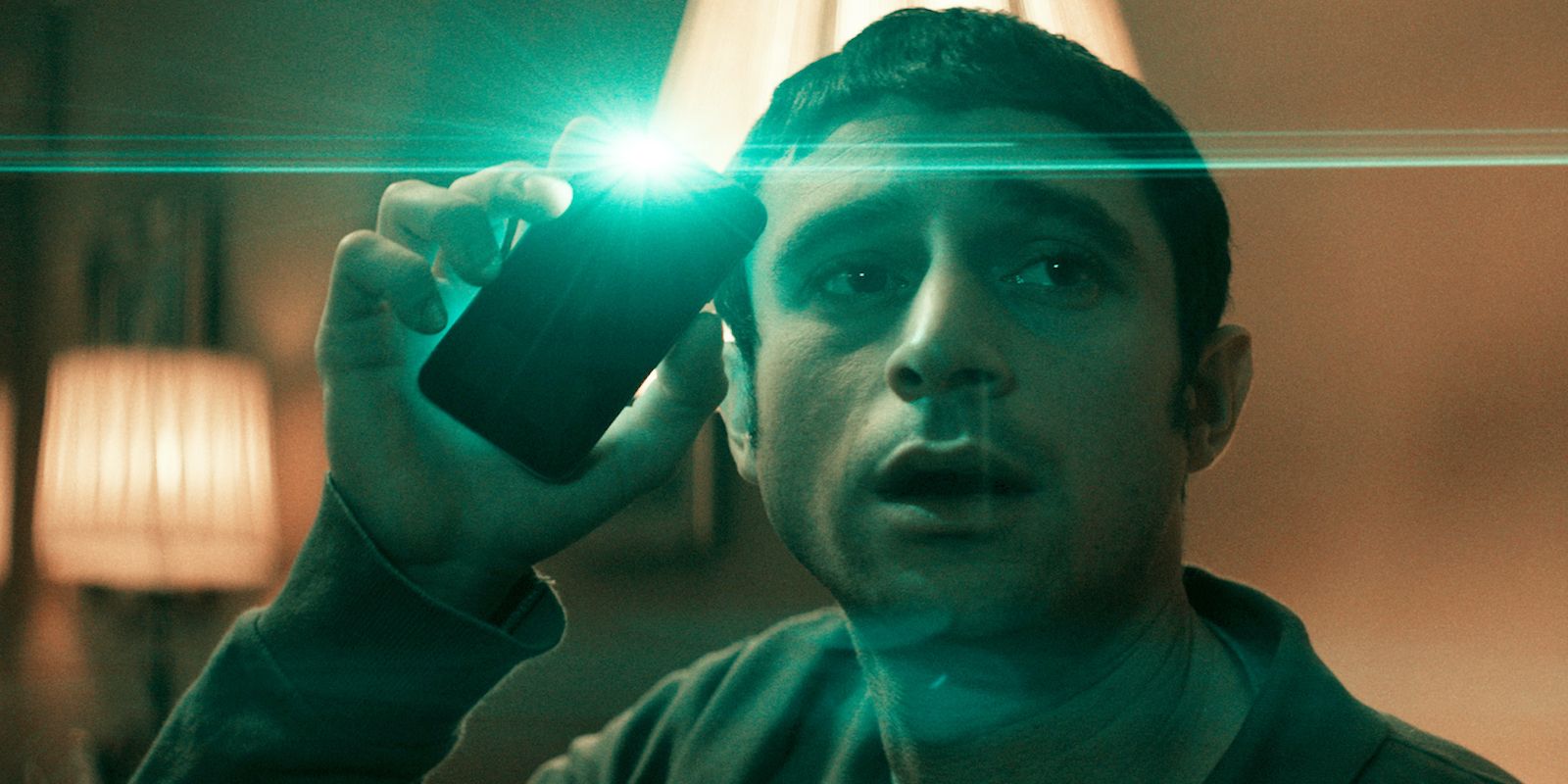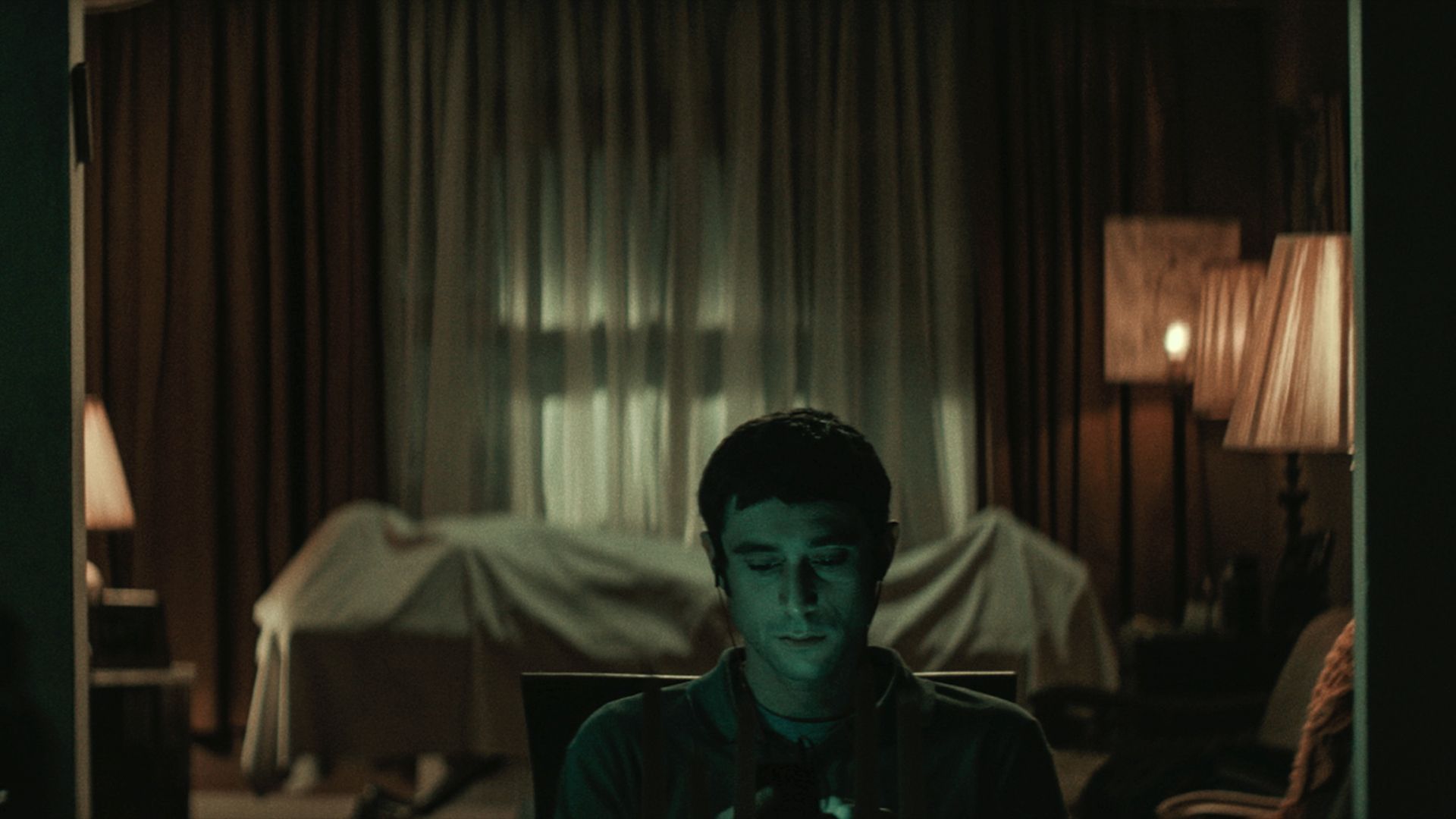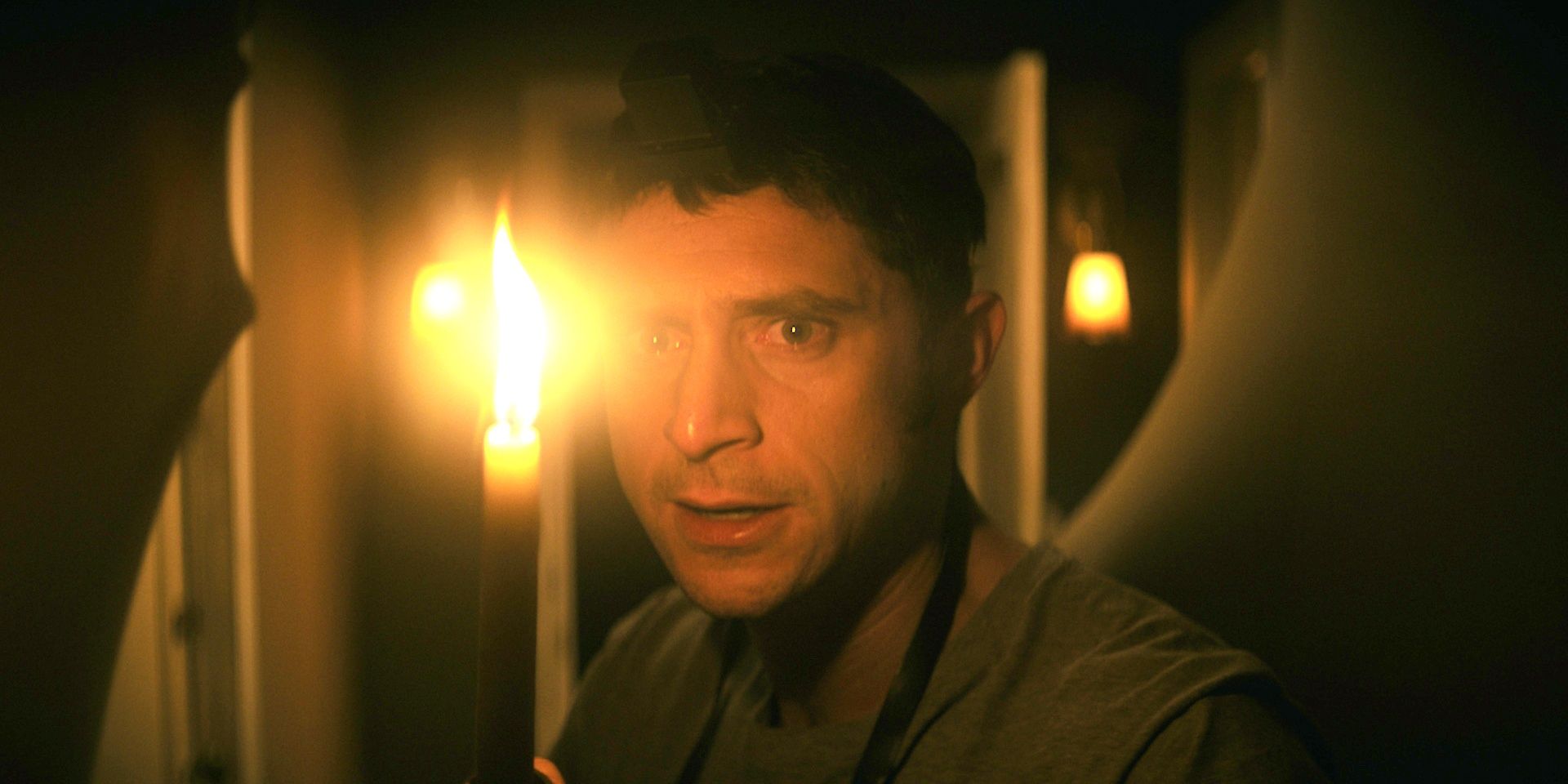The Jewish religion is full of rich lore and unique rituals, and yet few horror films are based on these traditions. Perhaps that's why writer and director Keith Thomas' feature debut The Vigil feels so innovative. The film spins a story steeped in Orthodox Judaism that offers a glimpse into a community that's rarely depicted onscreen. When main character Yakov agrees to serve as a shomer, sitting overnight with the body of a recently deceased member of the insular Hasidic community in Brooklyn he recently left, he realizes this death has released something sinister. Actor Dave Davis brings Yakov's terrifying night to life in a compelling performance where he's often completely alone. It's startlingly effective horror that at the same time is knowledgeable and respectful of the Jewish faith it's based on, even going so far as to have dialogue that alternates between English and Yiddish.
In a press conference attended by CBR, writer-director Thomas and star Davis spoke about how they ensured The Vigil authentically represented the Hasidic community, the challenges of shooting a film that often focuses on a single actor alone in a room and the other Jewish lore Thomas feels is ripe for the horror movie treatment.
Both Thomas and Davis made authentic depictions of the locations and people that populate The Vigil a priority. "In terms of the authenticity of the location and in terms of the house that we were in and the clothes and the look and the feel, some of it in terms of the prayers and the ritual and the mythology, that was stuff that I had researched in the script," Davis shared. "But then when we got to set, when we found that house and when we're in the community was really when we got to work in terms of the production design, with Liz Toonkel our production designer, in terms of really capturing authenticity. We had a lot of advisors, we had folks that [...] are performers who are in the film who came from that community who helped us to create as authentic a space inside that house as possible.
"It was super important that this place be as authentic as possible, both in terms of being a real representation of a Hasidic household, but also for the performances, for being in the world," Thomas added. "It goes beyond just the actor who's in front of the camera but everyone on set needs to feel it. It needs to feel as though they're in this space, just because that atmosphere, if you create that bubble, in a sense, I feel like it lends itself to every aspect of the production."
For Davis, bringing authenticity to Yakov meant developing his character as he immersed himself in the community the character is from. "It was very important to me that Yakov was never an imitation," Davis noted. "I never wanted to feel like I was just parroting something that I had heard. As much as I was learning a lot of my [Yiddish] lines phonetically it was also very important for me to understand what every single intonation was and what every single piece of each sentence was so that I could properly say what Yakov was trying to express.
"At first, I think I remember talking to Keith about, early on the accent isn't going to be there because I don't want to push it," Davis continued. "I don't want to try to just create this thing that sounds like what I think this is supposed to sound like. I want to live in this world and meet these people and delve deep enough so that organically once I understand Yakov's childhood, once I understand what's the first American movie Yakov ever saw, how does he speak to one person versus another, how does it change the way that he attempts to express himself, does Yakov care if he sounds more American in speaking to one person versus another. So that was able to develop organically over time, until we eventually started filming, I felt that Yakov had come to form."
Yet until he started working on The Vigil, Davis was unfamiliar with the being out of Jewish folklore the role required his character to confront. "I don't know that, prior to this, I had any experience with Jewish demons because I, like many, weren't really aware of their existence," Davis confessed. "I had heard of dybbuks, I had heard of golems, but as far as I understood the Jewish faith didn't believe in hell, it didn't believe in that sort of eternal damnation.
"But when I started to meet people from the community, I realized that's not necessarily true," Davis went on. "There's a lot of people out there that are told, 'If you do this you will be punished, if you go to this place, they will get you.' And that was eye opening to me. So it really opened up a whole new world of fears that I had previously not been exposed to."
For the production, the biggest hurdle to jump was keeping audiences engaged during the many scenes in which Yakov is the only character onscreen. Thomas and Davis rose to the challenge by always keeping Yakov's emotional journey front and center. "The challenge is it's a guy alone with a body who is going through his own mental […] issues that he's grappling with," Thomas observed. "And yet when you're filming it, it is Dave in a chair with 50 people surrounding him on the set. Everyone watching, waiting. And of course we're making it out of order in terms of the chronology of filming versus the chronology of the film itself. So, one thing that was important to me was just touching base all the time in terms of where we are emotionally, how we're getting from one scene to the next in terms of, when you cut this together, how do you keep it feeling tonally similar."
Meanwhile, of making his character interesting even when he's isolated, Davis said, "I had been trying to live within this sort of self-imposed psychological torture, so that work was all done [when we started filming]. I tried to come to set prepared, and then when it came time to actually sit down and hear Keith say, 'Action,' then it's just a matter of listening, whether it's listening to my own thoughts or the clock or another actor. It's just a matter of trying to go through what Yakov is going through."
To ensure the film was as terrifying as possible, Thomas also crafted a meticulous soundscape with his sound design team. "We were very lucky in that we got a really great group together in terms of the sound design and then the score and how those two things melded together," Thomas said. "I knew from the very beginning that, given the budget that this film would have and the horror genre in general, that sound was going to be huge in it. [...] It's crazy how sound just plays such a huge role in emotions you feel, especially fear. So, the sound design was always a crucial piece, I wrote it into the script as much as I could in terms of trying to evoke the mood. [...] I was lucky enough that we had a lot of time to develop those sounds. […] I said to my producers very early on that sound design on this film is going to be like 60 percent of it. It's just crucial."
Thomas' experience on The Vigil has opened up a plethora of other avenues for films based on Judaism. "I definitely have a lot of ideas of other Jewish horror," Thomas revealed. "It's definitely a well that has not been tapped really. We've seen dybbuks in films. Typically the setup for a dybbuk is a family that's usually not Jewish finds a dybbuk box and unleashes a dybbuk. I think there are interesting ways into a dybbuk story that we haven't seen, particularly around exorcisms, which do exist in certain communities in the Jewish faith.
"Golems haven't gotten their fair swing," Keith continued, "but also I've got a film idea for Lilith, which is typically the kind of succubus thing that people picture, but in the Jewish faith, there are many Liliths. They're actually plural Lilithim, and they're not always succubuses, they have very different approaches to what they are. So I think that's fertile ground, and something the producers of The Vigil and I have talked about a lot in terms of how else, what else do we tell, where do we go. So it's exciting. It feels like The Vigil opened a door to some of that stuff."
Starring Dave Davis, Lynn Cohen, Malky Goldman and Menashe Lustig, The Vigil opens Friday, Feb. 26 in select theaters and on VOD.



